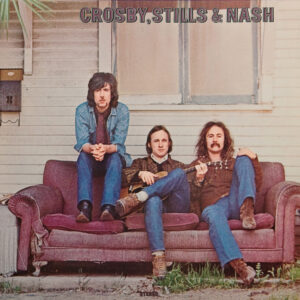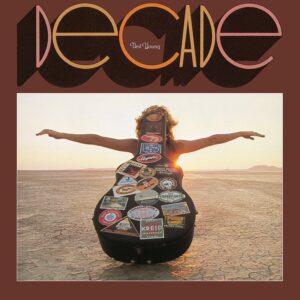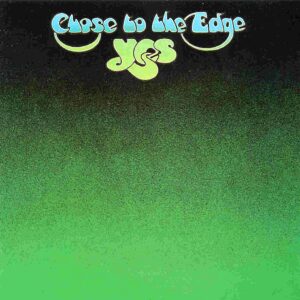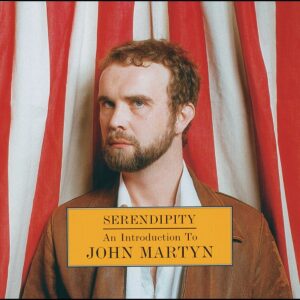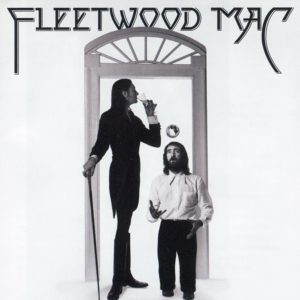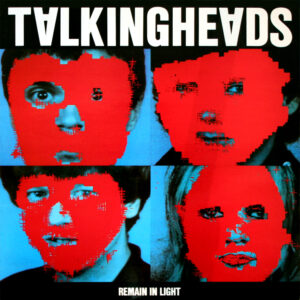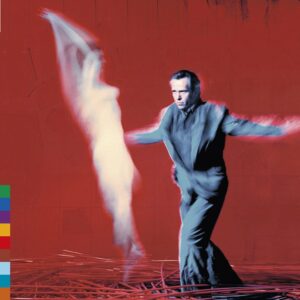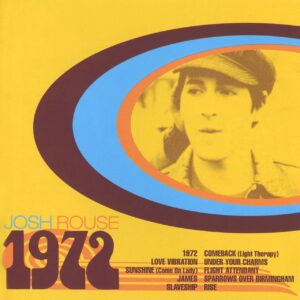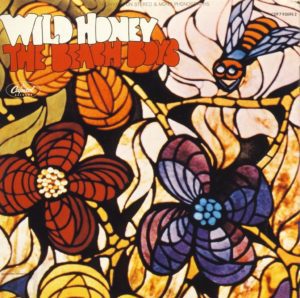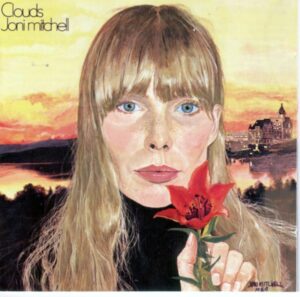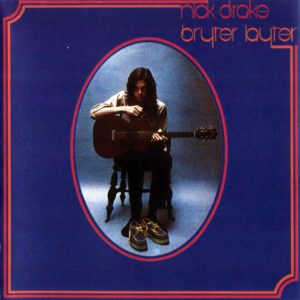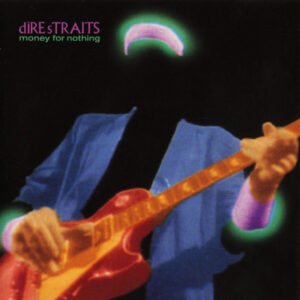
John Martyn was born Iain David McGeachy, the son of two opera singers – a surprising lineage given his characteristic slur. Martyn spent most of his childhood in Glasgow, playing rugby. His early music combined folk and blues, and at the time of his 1967 debut, London Conversation, he didn’t stand out in a crowded folk-rock scene with contemporaries like Fairport Convention, Pentangle, and Nick Drake.
Martyn moved to Woodstock in 1969 and made two records with his wife Beverley Martyn, a folk singer who had previously dated Paul Simon. Island felt that Martyn was more viable as a solo artist, and the strongest phase of his career started with 1971’s Bless The Weather. Despite a series of excellent records through the 1970s, his personal life was increasily affected by alcohol and drug abuse. His marriage to Beverley broke up in 1979, chronicled in 1980’s Grace and Danger. I’m only covering Martyn’s work through to the early 1980s – his later work is often described as uneven. Martyn passed away in 2009 at the age of 60.
Martyn developed an individual style as his career progressed – in particular, his guitar playing became more unique. He ran his acoustic guitar through effects, notably the Echoplex – his use of the Echoplex delay was influential on U2‘s The Edge. He was also a restless musical explorer – there’s traces of jazz and blues in his music, while Jamaican dub-influenced 1977’s One World. Martyn’s use of ambience and space was influential on genres like post-rock and trip-hop. In 2008 Martyn was described by Eric Clapton as “so far ahead of everything else it was inconceivable”.
John Martyn Album Reviews
London Conversation | The Tumbler | Stormbringer! (with Beverley Martyn) | The Road to Ruin (with Beverley Martyn) | Bless The Weather | Solid Air | Inside Out | Sunday’s Child | Live At Leeds | One World | Grace & Danger | Glorious Fool | Well Kept Secret
London Conversation

1967, 7/10
John Martyn was still a teenager when he recorded his debut London Conversation. The cover photo was taken on the roof of Island Records founder Chris Blackwell’s London flat. Martyn is the only credited musician on the record, although I’m unsure whether he plays flute on ‘Rolling Home’. It’s very much a conventional 1960s folk album, with none of the genre-bending that fans would come to expect from Martyn. ‘Rolling Home’ is based around Martyn’s sitar playing and most of the record is self-penned, although London Conversation ends with a cover of Bob Dylan’s ‘Don’t Think Twice, It’s Alright’.
While it’s not as vibrant as later releases, there’s plenty to enjoy on London Conversation. Martyn’s distinctive slurred voice and accomplished guitar picking are enjoyable on songs like ‘Back To Stay’, and his folk-inspired melodies are pretty on ‘Who’s Grown Up Now’. ‘Rolling Home’ may seem like a period piece with its sitar and long running time but it works well as a change of pace on an otherwise homogenous record.
Martyn would go on to make stronger and more creative records, but London Conversation is a promising debut from a teenager.
The Tumbler

1968, 6.5/10
Martyn’s second album is very similar to his first – another acoustic folk record. Martyn’s guitar playing is noticeably stronger, a result of spending time in the London folk scene with players like Bert Jansch. His musical vision is also expanding – there are more touches of jazz and blues than before, while the are more guest players than before including jazz flautist Harold McNair. The Tumbler was produced by Al Stewart, who stated that the album was recorded very quickly and he did little more than push record and encourage Martyn in between takes. Martyn was still only 19 when he recorded the album in July 1968.
The Tumbler is more diverse than London Conversation – Martyn’s playing straight blues on his cover of ‘Winding Boy’, while ‘The Gardeners’ steers into spooky psychedelia with McNair’s flute. Martyn’s guitar playing is especially impressive on the closing ‘Seven Black Roses’. Martyn’s still learning his trade as a songwriter – he’s able to write in different genres, but it’s not as soulful as his later work, with an air of detachment. He’s still strongest at pretty acoustic folk – songs like ‘The River’ and ‘Fly On Home’ recall Nick Drake.
As with Martyn’s other early records, he’d become more interesting once he developed his own sound, but he’s still talented at acoustic folk music too.
Stormbringer! – with Beverley Martyn
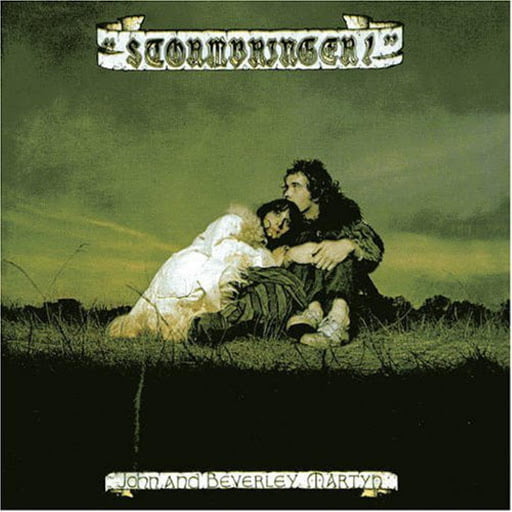
1970, 7/10
Martyn met and married Beverly Kutner in 1969. He was originally hired as the guitarist in her band but muscled into the main billing as the pair recorded two albums as a duo. They were based in Woodstock when Stormbringer! was recorded, living almost next door to Jimi Hendrix and down the road from Bob Dylan, Like many musicians at the time, the Martyns were influenced by The Band’s early records. The Band’s drummer Levon Helm plays on two tracks, while the record is produced by Paul Harris who’d later join Stephen Stills in Manassas.
John Martyn’s developed as an artist since his last record – the echoplex makes its first appearance with Martyn on record with ‘Would You Believe Me’. His material is generally moodier and more idiosyncratic than before, and songs like ‘John the Baptist’ and the title track are his first fully-realised songs. At the same time, Beverley isn’t always an asset – she’s a fine vocalist, but her songs aren’t as strong as John’s here – in particular, ‘Sweet Honesty’ is the record’s Achilles heel as it drags over eight minutes.
Stormbringer! is a step forward for John Martyn, even if it’s a little inconsistent.
The Road to Ruin – with Beverley Martyn

1970, 7.5/10
The Martyns were back in the UK for their second album together, The Road to Ruin. They recorded in Chelsea with ubiquitous folk producer Joe Boyd, and there’s more instrumentation than before. Paul Harris is back on piano and the backing band often provides a jazzy feel, which suits Beverley’s vocal timbre. Dave Pegg and Alan Spenner appear on bass along with Danny Thompson on upright bass; the latter would become John Martyn’s right-hand man over the rest of the 1970s. John Martyn railed against the lack of spontaneity in Boyd’s recording techniques, and he’s subsumed by the conventional arrangements at times.
Conversely Beverley Martyn shines in this environment and her material is stronger than on Stormbringer! ‘Auntie Aviator’ has a spooky ambience that justifies its long running time, while the opener ‘Primrose Hill’ was later sampled by Fatboy Slim. John Martyn’s work is more low-key, but often excellent – the jazzy textures work well on the closing title track, which builds from a quiet acoustic song into a jazz jam. The acoustic ‘Tree Green’ is pretty as well.
The Road to Ruin was the Martyns’ final album together- they’re clearly moving in different musical directions here. While John’s the more unique figure with his guitar experimentation and distinctive vocal style, there’s some strong Beverley material here and it’s a shame she took almost thirty years to make another album.
Bless The Weather

1971, 8/10
Island decided that John Martyn solo albums would be more viable, and Bless The Weather marks the beginning of Martyn’s classic run of albums for the next decade. Bless The Weather was recorded in three days, with Martyn often writing in the studio to capture a feeling of spontaneity. The Martyn family had moved to Hastings in the south of England, and the changeable weather influenced these songs. It’s Martyn at his sweetest and most innocent – there’s a disconnect between the mellow troubadour of Bless The Weather and reports of Martyn’s troubled private life. Martyn’s backing band includes Beverley on backing vocals, Danny Thompson on double bass, and Richard Thompson on guitar.
The core of Bless The Weather are the impossibly beautiful folk songs like ‘Just Now’, ‘Go Easy’, and ‘Back Down the River’. There’s a pretty ambience about these tracks, with Martyn’s warm vocals and gentle arrangements lending him a distinct identity. The light-hearted ‘Sugar Lump’ is one of the weaker tracks, but it’s probably needed among all the slower tracks. Martyn stretches out on ‘Glistening Glyndebourne’,. a lengthy composition that showcases his use of the Echoplex.
Despite the terrible cover image, Bless The Weather is a huge step forward for Martyn and it marks the start of a terrific streak of records.
Solid Air
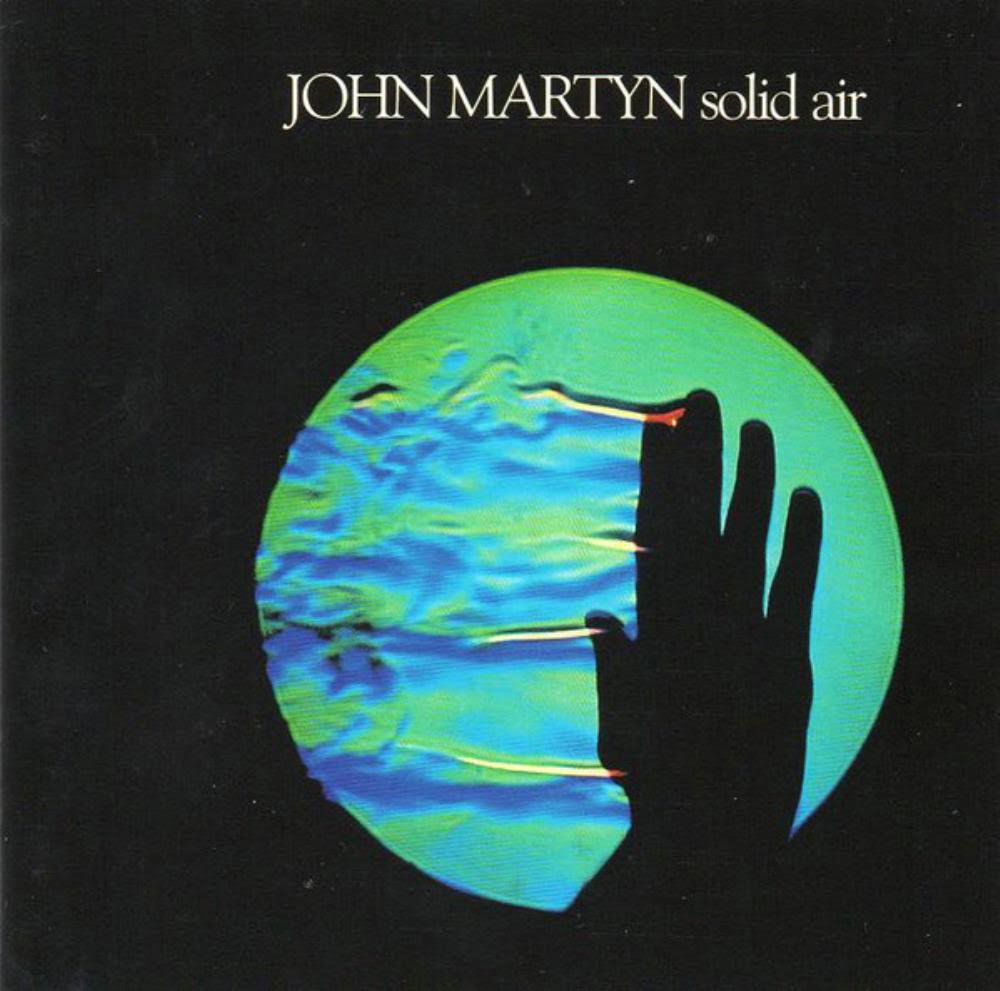
1973, 8.5/10
Martyn followed Bless The Weather with Solid Air – songs like ‘Over the Hill’ and ‘Go Down Easy’ continue that album’s sweet folk, while Martyn adds more overt touches of jazz and blues to his music. Martyn’s vocal slurring is on full display here for the first time. Solid Air is often regarded as Martyn’s best album, the one to own if you just want one Martyn album in your collection, but for my money it’s not the standout, merely a continuation of his 1970s excellence. John “Rabbit” Bundrick, who also appeared on Bob Marley’s contemporary records for Island, is on keys while Danny Thompson is on double bass.
Solid Air contains what’s probably Martyn’s best known song ‘May You Never’, which Eric Clapton covered on 1977’s Slowhand. It’s a strong piece of writing, with some dark undertones balancing the sweet sentiments. Even better is the title track which Martyn wrote to his friend Nick Drake, who would overdose on antidepressants the following year – it’s atmospheric and empathetic in a way that presages acclaimed records from Talk Talk in the following decade. My favourite obscure cut is ‘The Man in the Station’, where Martyn’s gentle vocals are punctuated by jazzy Fender Rhodes. Martyn stretches out with a six-minute cover of Skip James’ ‘Devil Got My Woman’, retitled ‘I’d Rather Be The Devil’, with heavy use of the Echoplex.
Solid Air is strong, but it’s one of half a dozen excellent albums Martyn made during this era.
Inside Out
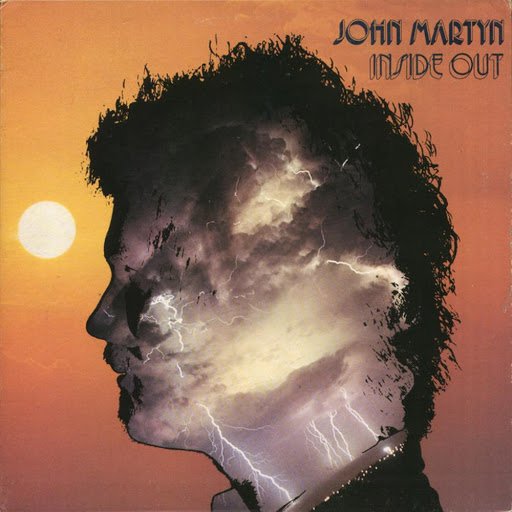
1973, 8/10
While Inside Out uses the same folk textures as Martyn’s other work, it’s very much a jazz album in spirit. Martyn described it as “everything I ever wanted to do in music… it’s my inside coming out.” Martyn was listening to John Coltrane – songs like ‘Outside In’ share Coltrane’s exploratory spirit, while ‘Make No Mistake’ references ‘A Love Supreme’. Along with Danny Thompson, Chris Wood and Steve Winwood from Traffic also appear while Bobby Keyes’ saxophone provides an explicit jazz ingredient. I’ve never connected to Inside Out as much as Martyn’s other work from the era – it’s less song-based and more improvisational than his other albums, but it’s enjoyable all the same.
Inside Out provides the best showcase for Martyn’s inventive guitar playing – the juxtaposition between the clean acoustic guitar and the echoplex on ‘Beverley’ is lovely, while ‘Outside In’ houses some of Martyn’s most astonishing playing. Martyn’s layers of guitar on the traditional ‘Eibhli Ghail Chiuin Ni Chearbhail’ highlights the similarities of the tune with Wings’ ‘Mull of Kintyre’. While the mood is dominated by the improvisational pieces, there’s standard Martyn fare like the opener ‘Fine Lines’ as well as the light-hearted ‘The Glory of Love’, which steers close to country.
If you want to hear Martyn at his most experimental, Inside Out is the record for you.
Sunday’s Child
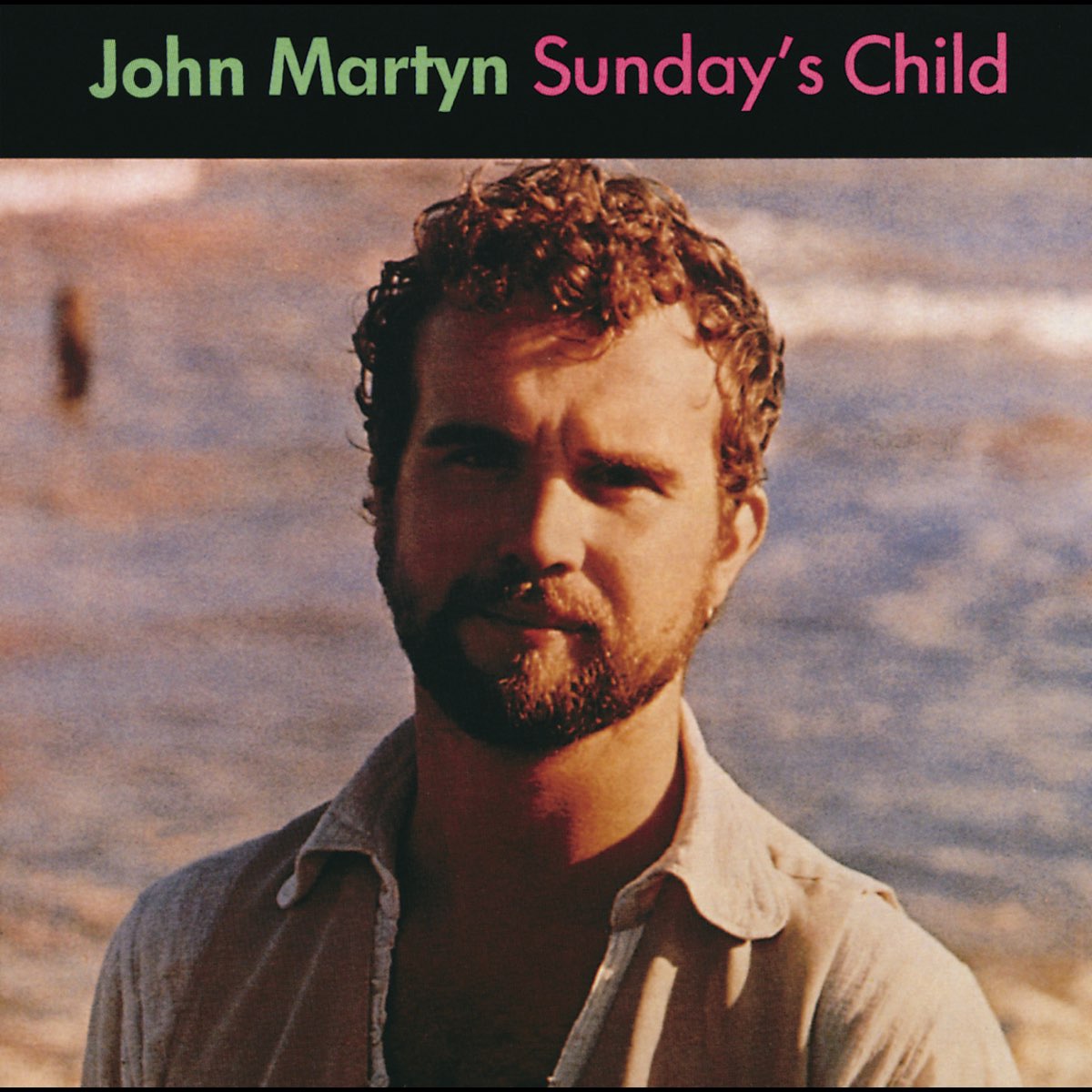
1975, 8.5/10
Sunday’s Child feels like a sequel to the warm folk textures of Bless The Weather, another portrait of domestic happiness. It’s light-hearted and features more covers than usual for a Martyn album, which may lead some listeners to dismiss it as light-weight, but it’s among his very best albums. One of the covers is a sublime version of ‘Spencer the Rover’, so natural that it feels like Martyn’s adopted it as a personal anthem, while he interpolates the traditional ‘Mairi’s Wedding’ into ‘The Message’. The one cover that seems extraneous is ‘Satisfied Mind’ – the record would have been stronger had it included the traditional American song ‘Ellie Rhee’, included on reissues as a bonus track. Beverley Martyn appears for the last time on a John Martyn record, providing backing vocals on ‘My Baby Girl’.
With a string of strong records under his best, Martyn’s more confident. He’s complements his folk songs with funky and bluesy rockers that feature his distinctive guitar work – that huge sounding riff on ‘Root Love’ at the end of the chorus shouldn’t fit but it does, while ‘Clutches’ is succinct and funky. The opener ‘One Day Without You’ is a succinct pop/rock song that could have been a hit in a just world. There’s a jazzy feel to the charming ‘My Baby Girl’ and the title track.
Sunday’s Child is lighter than most of Martyn’s work, but it’s excellent all the same.
Live At Leeds
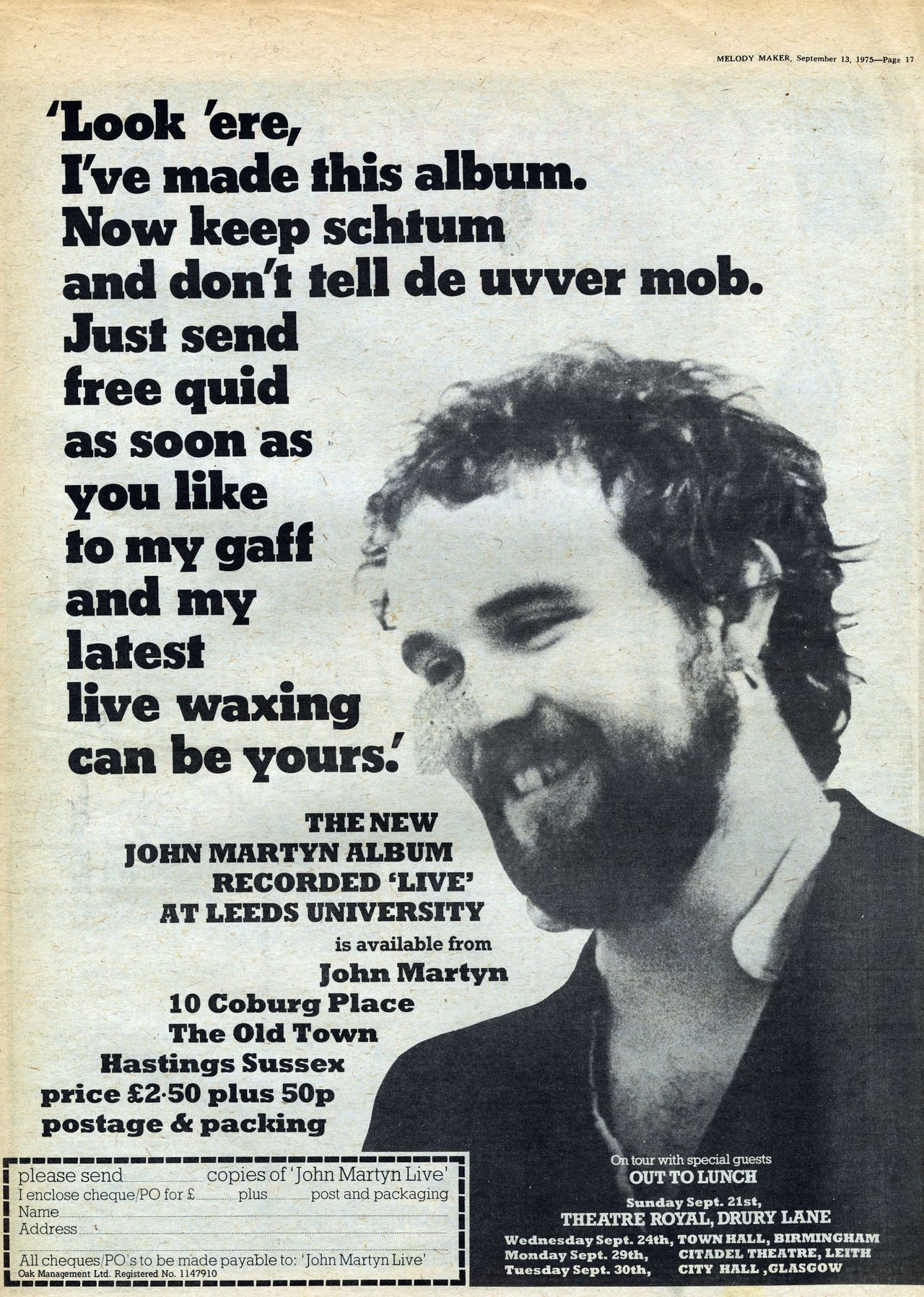
1976/2010
This is the biggest gap in my Martyn collection – it was recorded in 1975, and Martyn released it independently after Island refused it. The address is the pictured advertisement was Martyn’s actual address, and the 10,000 copies in the original run were signed by Martyn. The album was reissued as a two-disc set in 2010. Martyn is accompanied by Danny Thompson and drummer John Stevens, while former Free guitarist Paul Kossoff appears on some tracks in the expanded version.
One World
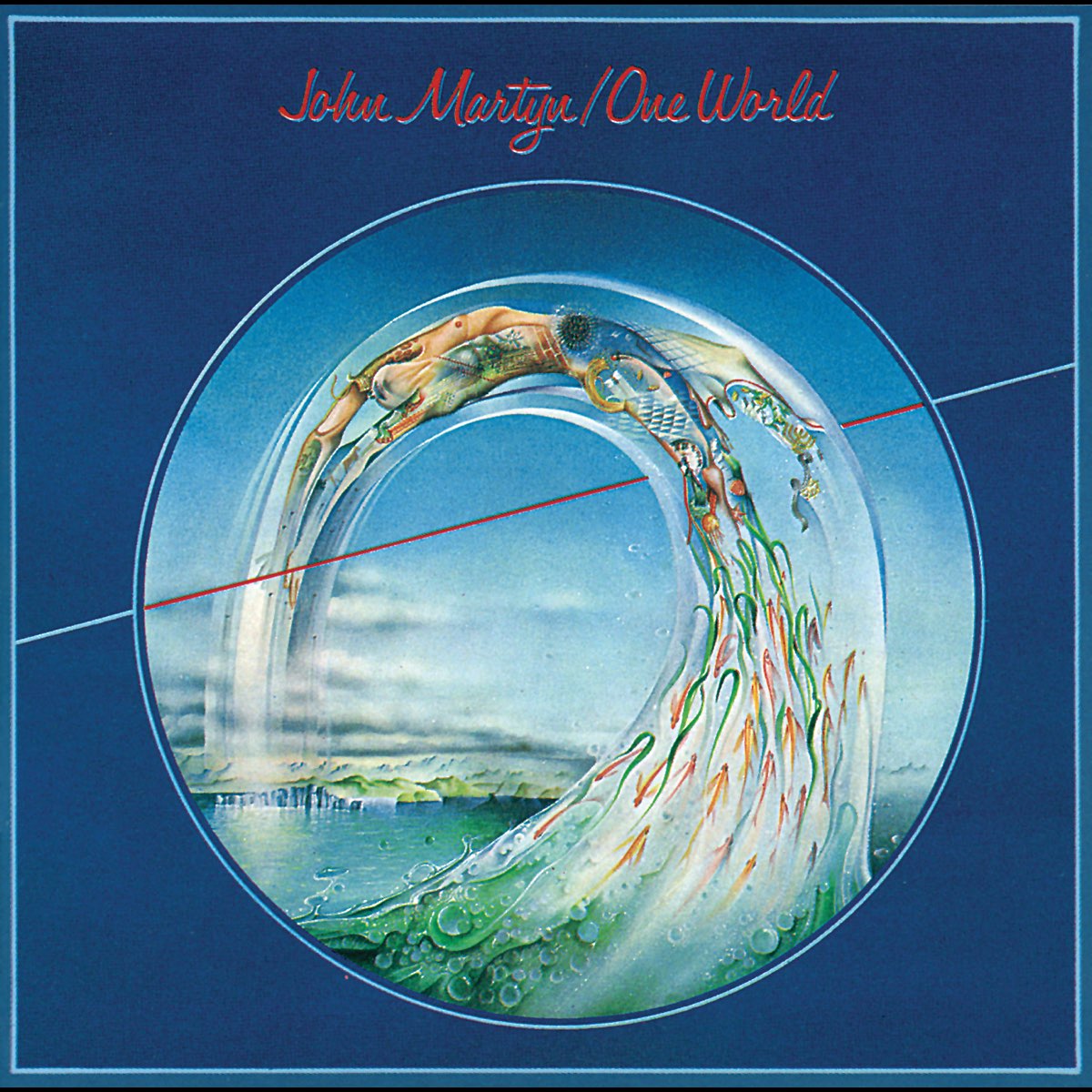
1977, 9.5/10
Disillusioned by the music industry and the recent deaths of close friends Nick Drake and Paul Kossoff, Martyn spent a year on sabbatical. On Island founder Chris Blackwell’s invitation, he holidayed with his family in Jamaica where he jammed with Lee “Scratch” Perry, who co-wrote ‘Big Muff’. One World isn’t a dub album, but the use of ambient space was influenced by Perry’s recording techniques. The record was recorded outdoors at Blackwell’s farm in Berkshire, with the microphones taking in the sounds from the lake.
One World is the first Martyn album with almost no folk influences, instead focusing on a contemporary pop/jazz sound. Martyn’s vocals have more grit and swagger than before. Martyn’s accompanied by Perry and Danny Thompson, but his most frequent collaborator on the record is Steve Winwood, who contributes keyboards and bass.
One World opens with my favourite Martyn track, ‘Dealer’. It’s a swaggering rocker with layers of Martyn’s guitars, while the rhythm section of Winwood and Andy Newmark is driving and funky. ‘Couldn’t Love You More’ is a desperate, emotional love song, with Martyn’s voice gritty. Martyn often closed his record with a long and atmospheric track, and ‘Small Hours’ is my favourite of these, Martyn running a haunting guitar figure through his Echoplex. ‘Certain Surprise’ is a little closer to lounge jazz than I would have preferred, but Martyn’s voice is soft and charming.
One World is Martyn’s best record, excelling outside the folk sphere.
Grace & Danger
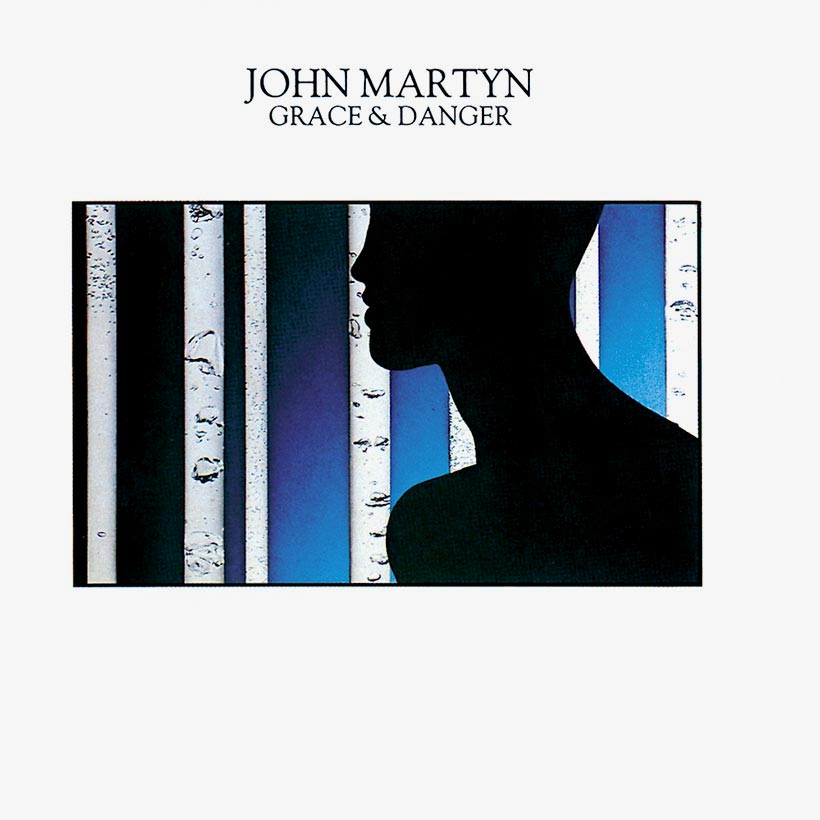
1980, 8.5/10
John and Beverley Martyn were divorcing when Grace and Danger was recorded. Island boss Chris Blackwell was friends with the couple and refused to release the record for a year, finding it too depressing. It continues the contemporary pop/rock sound of One World; it lacks that record’s eclecticism, but it is interesting to hear Martyn’s echoplex in a mainstream context. The songs are strong and filled with emotion, making it one of Martyn’s strongest records. Phil Collins, also going through a divorce at the time, plays drums, while John Giblin’s jazzy fretless bass is also prominent.
The swagger from One World is back – Martyn rocks his way through the title track and ‘Save Some (For Me)’. But the heart of the record are the slow and lovelorn songs – ‘the slinky heartbreak of ‘Sweet Little Mystery’ and Martyn’s heartrending Echoplex in ‘Hurt In Your Heart’ are both beautiful. Martyn’s yearning in ‘Baby Please Come Home’, while Beverley Martyn has a writing credit on the closer ‘Our Love’, a nuanced look back at the couple’s relationship – “Our love/Once was deeper than the darkest blue could be/Now I find/I have to search my mind/To find the smallest trace of you in me.” There’s also a cover of ‘Johnny Too Bad’ from The Harder They Come soundtrack.
Grace & Danger was a favourite of Martyn from his catalogue, even though he admitted that he recorded it “I was hardly in control of my own actions”.
Glorious Fool
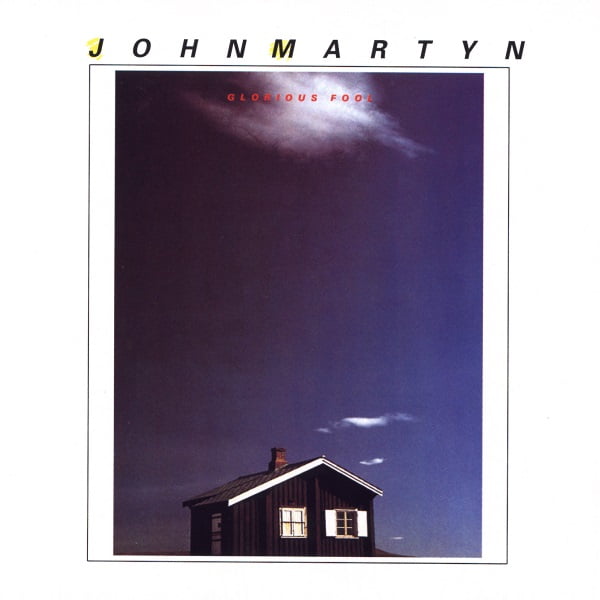
1981, 7.5/10
The delay in releasing Grace & Danger damaged Martyn’s relationship with Island, and 1981’s Glorious Fool was instead released on WEA. Phil Collins is back, producing as well as drumming. Glorious Fool is largely a continuation of the contemporary stylings on Grace & Danger, although the songwriting isn’t quite as sharp. Glorious Fool was the least consistent Martyn album in a decade, but that’s largely a reflection of how strong Martyn’s records were over that period.
Eric Clapton guests on the opener, a remake of ‘Couldn’t Love You More’ from One World – his soloing is surprisingly reminiscent of Glenn Frey’s guitar work on the Eagles’ ‘I Can’t Tell You Why’. Take away the vocals and ‘Didn’t Do That’ sounds like a 1970s Weather Report track with the English session musicians evoking Jaco Pastorius bass and Wayne Shorter sax. ‘Pascanel (Get Back Home)’ feels apiece with the heartbroken ballads on the second side of Grace & Danger, while the sassy funk-rock of ‘Amsterdam’ is a style he’d continue with. The standout track, though, is the hypnotic ‘Please Fall In Love With Me’ – Martyn’s vulnerable vocals are affecting in the a capella closing.
Glorious Fool captures Martyn coming down from his peak, but it’s still a fascinating record.
Well Kept Secret
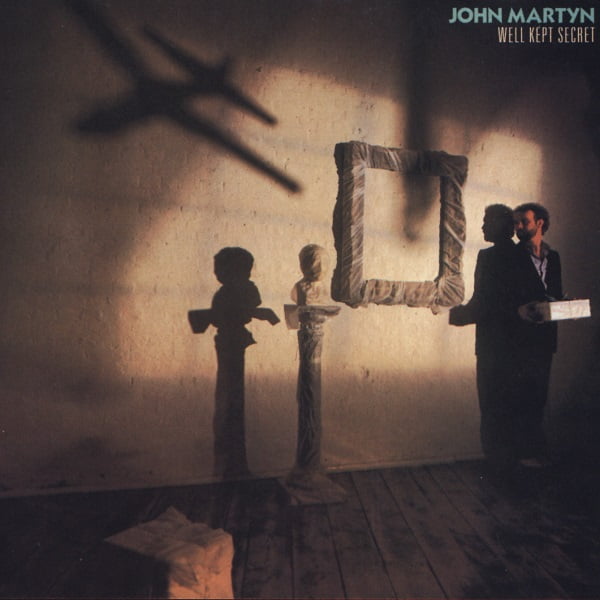
1982, 6.5/10
Well Kept Secret continues the trend of Glorious Fool, with Martyn venturing ever closer to the mainstream. It was Martyn’s highest-charting record in the UK, just creeping into the top 20. Even as the production and arrangements become more generic, Martyn has enough emotion in his voice to make these records appealing. The backup cast is less prestigious than before, although King Crimson alumni Mel Collins appears on sax. Martyn accidentally impaled himself on a fence during the recording sessions and punctured a lung. Dosed up on painkillers, he was unable to remember the rest of the sessions.
Among the generic arrangements, there are still some keepers. The hyper-kinetic ‘You Might Need A Man’ is fun, showing Martyn’s pop sensibility, as does ‘Hung Up’. Martyn croons his way through the traditional vocal jazz arrangement of ‘Never Let Me Go’. It’s interesting hearing Martyn play 1980s mainstream rock on ‘Back with a Vengeance’ and ‘Gun Money’, but the raw emotion of closer ‘Livin’ Alone’ is more effective.
Despite its chart success, Martyn has better records than Well Kept Secret but it’s still fun.
John Martyn recorded 12 more studio albums, from 1984’s Sapphire to 2011’s posthumous Heaven and Earth. 1992’s Couldn’t Love You More and 1993’s No Little Boy are collections of studio re-recordings of Martyn’s back-catalogue, while 1998’s The Church With One Bell is a covers album. From the latter, Martyn’s cover of Portishead’s ‘Glory Box’ is one of his most streamed songs on Spotify. I’m not adverse to dipping further into Martyn’s catalogue at some point, but I’m leaving it here for now.
10 Best John Martyn Songs
Dealer
Couldn’t Love You More
Solid Air
Spencer The Rover
Sweet Little Mystery
The Man in the Station
Small Hours
May You Never
Please Fall In Love With Me
Just Now
Back to 1970s Album Reviews…
Related Pages
About
Aphoristic Album Reviews is almost entirely written by one person. It features album reviews and blog posts across a growing spectrum of popular music.
Review Pages
Read about the discographies of musical acts from the 1960s to the present day. Browse this site's review archives or enjoy these random selections:
Blog Posts
I add new blog posts to this website every week. Browse the archives or enjoy these random selections:

